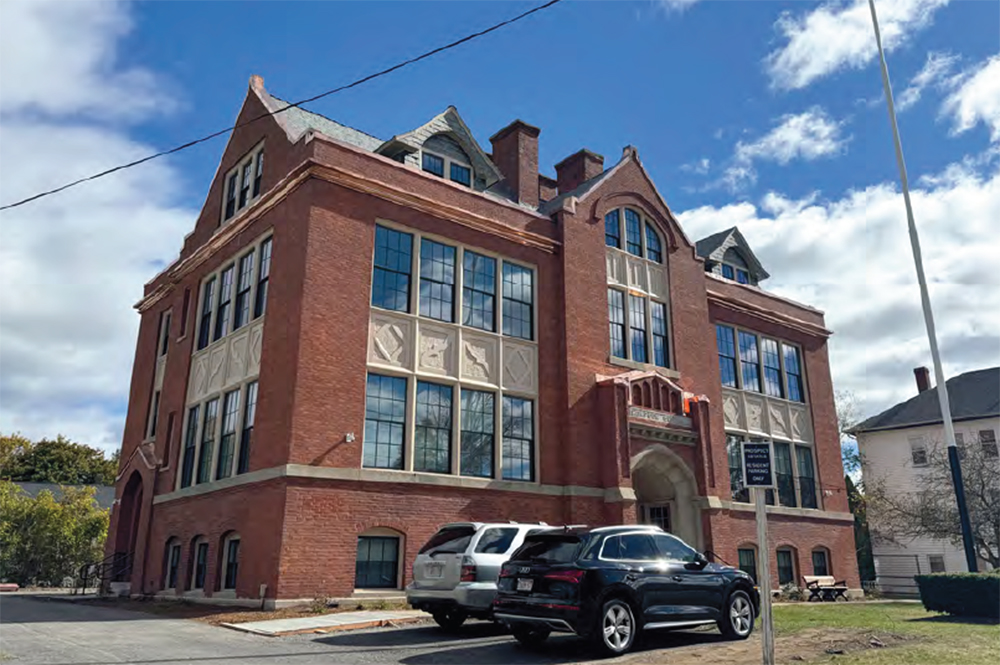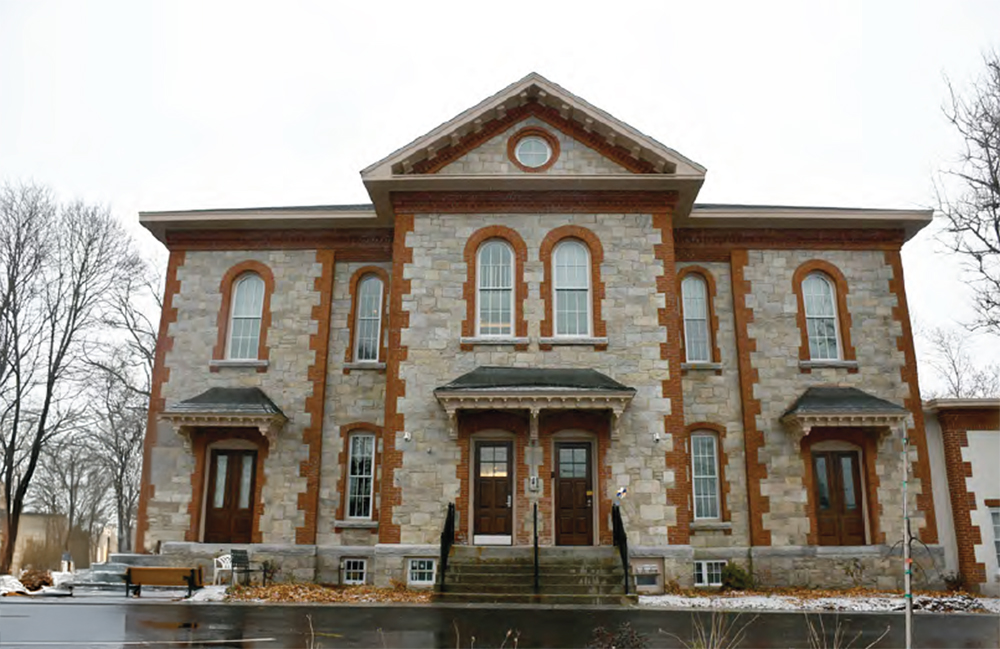
Prospect Estates is a 25-unit affordable housing community in Webster, Mass., developed to address the region’s need for affordable housing and to revitalize a financially struggling property. The property, which once housed two schools, had faced significant issues such as physical deterioration and compliance concerns, requiring both financial repositioning and extensive corrective efforts from management and ownership. The transformation has resulted in a residential community offering studio, one-, two-, and three-bedroom apartments.
Located at 10 and 41 Prospect St., both properties were former school buildings and originally redeveloped as affordable housing in the late 1990s. The property was subsequently sold to the non-profit Women’s Institute for Housing and Economic Development (WIHED) in 2013. In 2021, Affordable Housing & Services Collaborative, Inc. (AHSC) acquired ownership of Prospect Estates, transitioned property management to Peabody Properties, Inc. and quickly worked to secure state and federal funding to reposition the property and address long-term financial and physical needs of both buildings.

Project Background/Preserving Historic Character: Webster, like many communities in Mass., has experienced challenges related to housing, including increased rental costs and a shortage of affordable housing options. The Prospect Estates project was identified as a solution to provide quality housing at an affordable price. Additionally, the project gave new life to a property that was originally home to two historic school buildings that served the educational needs of the community for many years, making them significant landmarks in Webster’s history. Prospect Estates honors the buildings’ legacy, with many former students and community members expressing pleasure at the repurposing and restoration. This embodies the true intent of the federal and state historic tax credit programs – breathing new life into historically significant buildings.
Funding and Financing: Securing $13 million in funding for Prospect Estates was a complex process that involved multiple sources. The project was developed by AHSC with $6.9 million in bridge financing from MassHousing for the acquisition and renovation of the property. The project also received federal and state Low-Income Housing Tax Credits (LIHTC), state and federal Historic Tax Credits, and direct support from the Massachusetts Executive Office of Housing and Livable Communities (EOHLC), the Affordable Housing Trust Fund, and the Housing Stabilization Fund.
Additionally, AHSC secured State Historic Tax Credits to restore the buildings’ architectural character, including historically accurate signage and windows, restored five-pane entry doors, slate dormer repairs, and full façade repointing. To ensure the redevelopment was viable, Project-Based Vouchers through EOHLC (administered by RCAP) were obtained, a key strategy in making the project financially sustainable.
Planning, Design, and Construction: The planning of Prospect Estates involved community input as the project aimed to address the needs and preferences of the local community while preserving the historical significance of the buildings. Community engagement was a key aspect of the planning process to ensure that the renovations and improvements would benefit current and future residents.

The construction phase, with NEI General Contracting (NEI) acting as GC, involved extensive renovations and improvements to the two historical low-rise buildings.
Key architectural and civil design aspects, coordinated by Marcio Tavares of The Architectural Team, included:
• Kitchen and bathroom renovation and upgrades;
• Electrical upgrades for safety and efficiency;
• Installation of efficient HVAC systems, including mini-splits;
• Revitalization of common areas;
• Sprucing up exterior through landscaping, paving, and grading upgrades;
• Roof replacement; and
• Preservation of historical elements- windows, brick/stone, doors, common areas, flooring.
By utilizing temporary on-site units, AHSC, in partnership with the Worcester Housing Authority, developed an efficient relocation plan to ensure that residents were displaced for less than 30 days while their apartments were fully renovated. This approach saved over $100,000 in relocation and construction loan interest costs while minimizing disruption for residents.
Community Impact and Resident Benefits: The redevelopment of this historically significant site has preserved its historical essence while providing modern amenities and housing solutions. This balance between preservation and modernization has contributed positively to the community, offering stable housing and fostering a supportive environment for residents. Key impact and benefit elements include:
• Significantly decreased crime rates at the property due to the installation of a comprehensive security system, featuring access control and high-resolution cameras;
• An on-site management office has been established, a critical improvement as residents previously had no direct, on-site point of contact for assistance; and
• The property has been upgraded with bike racks, picnic tables, benches, and additional accessibility features to create a more welcoming environment for residents and appeal to the community at large.
The Bottom Lines: Prospect Estates serves as a testament to AHSC’s commitment to transforming distressed properties into thriving, financially stable, and historically preserved community assets.
Under the stewardship of AHSC, with the help of its management agent, Peabody Properties, Inc., this property is now financially self-sustaining, generating over $30,000 annually in tax revenue for the town of Webster, and preserving affordable housing units in the town for years to come.
Notably, the project surpassed its targets for local and minority participation, with minority workers contributing over 11,000 labor hours, representing 50% of the total hours worked.
Prospect Estates represents a model for affordable housing development, demonstrating that with careful planning, community involvement, and strong partnerships, it is possible to preserve and maintain high quality, affordable housing that benefits both residents and the broader community.
Andrew Hayward is a development manager with Affordable Housing and Services Collaborative, Braintree, Mass.
 (1).png)







